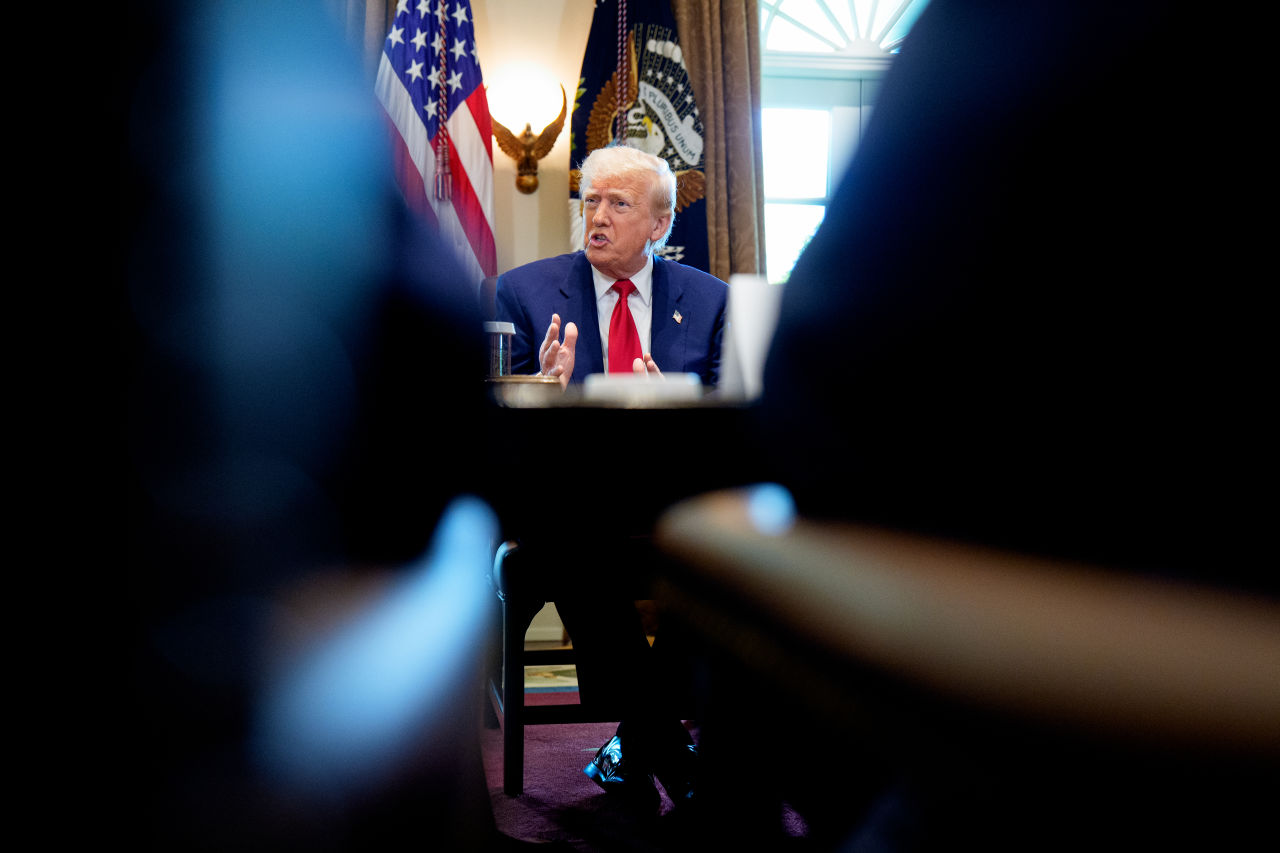Trump's Plan: Cut $163 Billion from Government Programs in New Budget Proposal

WASHINGTON—President Trump plans to suggest significant reductions in federal funding for environmental initiatives, renewable energy projects, education, and foreign aid as part of a budget outline that would cut non-defense discretionary spending by over $160 billion, said administration officials.
The fiscal year 2026 budget proposal, set to be unveiled by the White House this coming Friday, primarily serves as a ceremonial outline detailing the administration’s financial and policy preferences. Given their slim margins in both legislative bodies, Republican leadership will oversee an extended period of deliberation aimed at determining which aspects of the suggested framework merit enactment into legislation.
The proposed budget plan includes $557 billion for nondefense discretionary spending, according to officials. This amount reflects a reduction of $163 billion in such expenditures, as stated by these officials. The administration noted this equates to a 22.6% decrease compared with anticipated spending levels set for fiscal year 2025, concluding on September 30th. However, details were not provided regarding the methodology used to determine this specific percentage drop.
Non-defense discretionary spending refers to the part of federal funds that needs to be renewed annually. This category encompasses support for sectors like education, transportation, and public health. However, it excludes expenditures related to Medicare, Medicaid, Social Security, and defense.
The budget plan put forth by Trump would boost spending on border control and defense initiatives, according to officials. Additionally, it aims to enhance financing for aviation and railway safety, support for military veterans, and resources for law enforcement agencies.
The president's plan expands upon Trump's previous attempts to abolish diversity, equity, and inclusion programs, revoke the clean-energy objectives set by the Biden administration, and focus on eliminating funds for various programs, grants, and research projects that the current administration claims foster inefficiency or advance a particular political stance.
Since assuming power in January, the administration—which is headed by Elon Musk’s Department of Government Efficiency, a billionaire himself—has initiated early moves to disassemble various federal organizations and dismiss public sector employees.
Documents reviewed by The Wall Street Journal reveal that the White House plans substantial reductions in funding for various agencies including the Environmental Protection Agency, the Energy Department, the Interior Department, the Department of Housing and Urban Development, the Education Department, the National Institutes of Health, and the National Oceanic and Atmospheric Administration.
A significant portion of the annual expenditures by the federal government is dictated by past laws and the financial commitments to lenders, which have increased as part of the U.S. government’s duties. federal debt has ballooned.
Trump's plan is referred to in Washington circles as a "slim budget," often presented during a president's initial year in office. This document provides key funding requests but lacks the detail found in the complete budget that the administration will unveil later this month. The president is scheduled to deliver the preliminary budget to Capitol Hill on Friday.
Musk has projected that DOGE could reduce expenditures by $150 billion during the upcoming fiscal year, starting October 1st. He has committed to identifying a cumulative savings of $1 trillion overall.
The anticipated budget from Trump aims to address programs deemed "inefficient" by his administration, based on statements made by officials. It proposes motivating states to reclaim control over certain policies, discontinuing what they consider "politically correct" projects, and cutting financial support for environmental and renewable energy initiatives.
A government employee who knows about the budget stated that it aims to remove numerous federal grants established under the Biden administration and compel greater fiscal involvement from local governments and states. Additionally, the proposed budget would phase out certain federal block grants or combine them as a means of cutting down on administrative expenses.
The proposed budget aims to introduce significant reductions in foreign aid expenditures. Under Trump’s administration, the U.S. Agency for International Development (USAID) has been dissolved, with the remaining functions transitioning under the purview of the State Department. Additionally, this budget seeks to terminate several agencies that have previously faced scrutiny due to Trump’s executive directives.
As stated by administration officials, the suggested budget reductions put forth by Trump encompass:
Removing office spaces within the Cybersecurity and Infrastructure Security Agency Reducing financial support for "environmental justice" projects at the Environmental Protection Agency Terminating operations at USAID and redistributing grant monies elsewhere Axing a federal initiative providing subsidies to non-profits aiding individuals facing housing bias Deallocating resources from the National Endowment for Democracy, an organization supporting democratic structures worldwide Trimming so-called superfluous and ideologically charged Federal Emergency Management Administration (FEMA) subsidy schemes Disbanding the U.S. Institute of Peace, a federally supported body aimed at averting international disputes Redirecting the National Institutes of Health towards studies aligned with Trump's "Make America Healthy Again" platform Scrapping a $315 million early childhood education enhancement fund deemed too focused on diversity, equity, and inclusion policies Decreasing allocations totaling $77 million intended for instructor training and skill advancement programs labeled as promoting critical race theory and inclusivity agendas Dismantling the Minority Business Development Agency, tasked with fostering entrepreneurship among minorities Phasing out the Community Development Financial Institutions Fund designed to spur economic activity in impoverished areas Withdrawing $5.2 billion from the budget of the National Science Foundation Revoking $15 billion allocated under previous president Joe Biden’s infrastructure legislation earmarked for sustainable power technologies Ceasing American participation in multilateral efforts assisting less developed nations adapt to climatic shifts Halting environmental protection agency contributions toward external scientific inquiries Reduction by $2.5 billion in expenditure plans concerning green energies managed through the department of energy Diminishing spending related to eco-friendly endeavors across departments overseeing interior regions by $80 million Cancelling all ongoing activities financed via various grants administered by the National Oceanic and Atmospheric Administration
Send your message to Meridith McGraw. Meridith.McGraw@WSJ.com

Post a Comment for "Trump's Plan: Cut $163 Billion from Government Programs in New Budget Proposal"